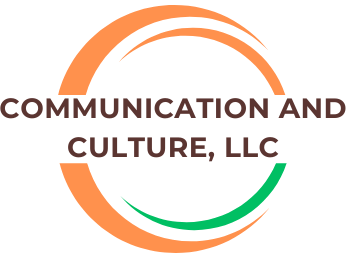
Why Health Equity is a Team Sport and NOT "Survival of the Fittest"
Or, How to Stop Worrying and Love Collaboration
Health enthusiasts and equity warriors, gather around, grab your organic kale chips, and let's dive into a topic I’ve sometimes found myself in a love/hate relationship with: Collaboration. Health Equity ain't a solo mission to Mars.
The "Lone Wolf" Syndrome
I must admit, at times I’ve played the “Lone Wolf” superhero? "I work alone," I bragged in my Arnold Schwarzenegger voice. Then I’d brood in my dimly-lit lair surrounded by gadgets built without the engineering degree I once aspired to complete.
In the real world—specifically the complex, ever-evolving landscape of health equity— that was a recipe for disaster. As an organizational communication professional, I’ve written and trained teams on the importance of Diversity of Type, Team building, and Growth Mindset, Jevon Wooden, MBA 💡, can I get a witness? Still I often lingered too long in isolation amidst severe stress and multiple caffeine addictions. Why?
The Fear Factor
Why do we shy away from collaboration? One word: Fear. Fear that someone else will snatch our brilliant idea and run away with it like Gollum and his "precious." Fear that we'll be revealed as a fraud because, gasp, we “don't” know everything. Fear that someone else’s success will make us look bad by comparison.
Let's get real for a second. Are we seeking ratings for the reality show of our lives, or are we trying to level the healthcare playing field?
Collaboration Over Competition
You've probably heard of the old saying, "We are stronger together." Well, spoiler alert: It's true! When it comes to tackling health equity, why take on the world alone when you can assemble a diverse Justice League of collaborators?
Just like Batman has Robin, Superman has Lois Lane, and SpongeBob has Patrick (Hey, mental health matters too, okay?), a great collaborative team can help you spot your blind spots, build on your ideas, and generally make you a better advocate for health equity.
Enough Pie for Everyone
Listen, I get it. It's easy to think that the arena of glory, publication credits, and grant money is a zero-sum game. But honestly, there are enough challenges in healthcare to keep everyone busy until the end of time (or at least until we achieve universal health equity, whichever comes first).
So rather than eyeing your colleagues’ grant or side-eyeing their public speaking gig, as Denise Johnson, MD, FACOG, FACHE says, think of how their contributions lift all boats. Their win is not your loss; it's humanity's gain. And there’s plenty of room at the table—or pie, if that's more your thing—for everyone to have a slice of success.
It’s OK to Ask for Help
Somehow, asking for help has been stigmatized as a sign of weakness. And to that I say, "Get outta here!" You wouldn't expect your dentist to also tune-up your car, so why expect yourself to be an expert in every facet of health equity? Bring in statisticians, social workers, educators, and even poets. Yes, poets. Sometimes, you need a Haiku to really drive a point home.
The Bottom Line: Teamwork Makes the Dream Work
In conclusion, my fellow health equity champions, it's time we throw out our superhero capes (they’re not FDA approved anyway) and embrace the power of collaboration. You don't have to do it all yourself. No one can whistle a symphony!
So let go of your fears, put the 'I' back in 'team' (wait, that's not right), and remember, we will never achieve true health equity unless we work together. And maybe, just maybe, in the process of lifting others, you'll find that you've reached new heights yourself.
Until next time, keep fighting the good fight. Because if we don't, who will?
What can you do TODAY to support health equity? I’m learning about @Cover Alabama and opportunities to support meaningful work in my home state.
Smash that like button, share your thoughts in the comments, and remember: Collaboration is not a dirty word; it's the path to a better world for everyone.
Donna skillfully combines her roles as a journalist, educator, and organizational communication professional to advocate for health equity. She nurtures dreams of stand-up on Shenanigans Comedy Theatre stage while offering insights into her journey from private and public sector careers to the world of entrepreneurship.

